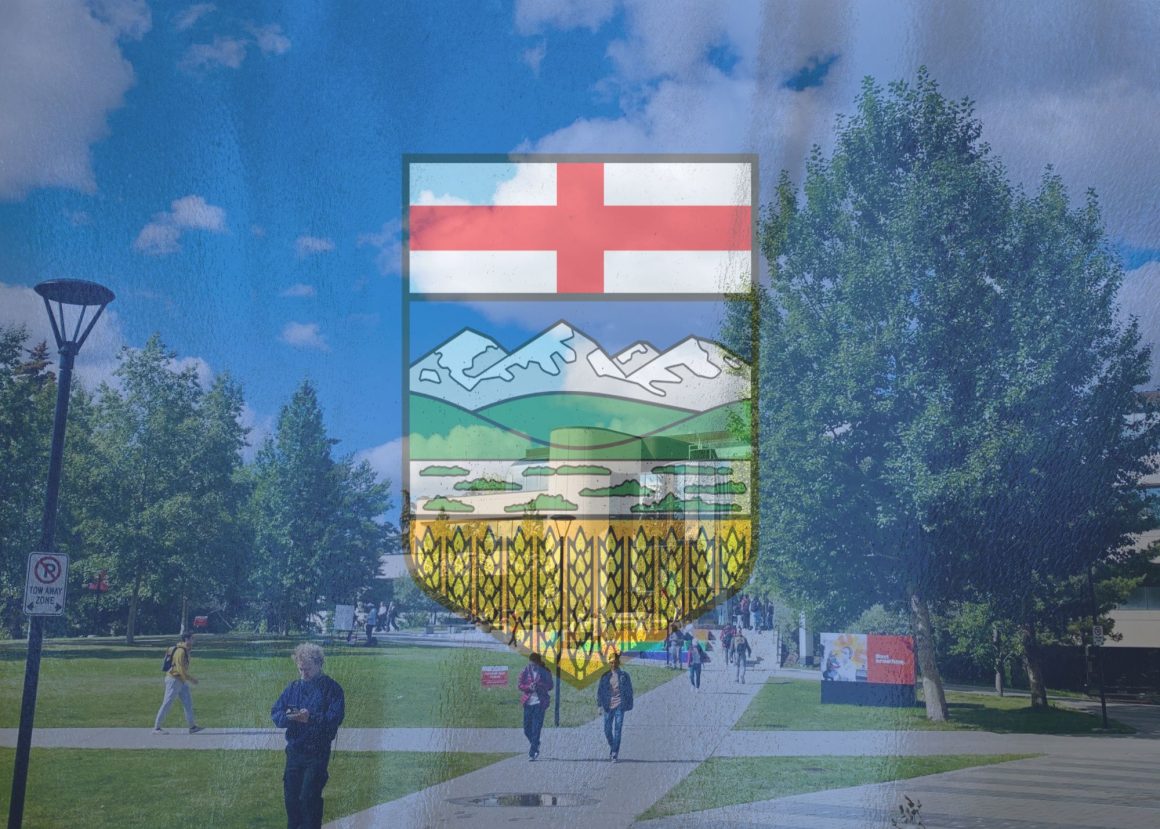
U of C’s role in the development of the premier’s Sovereignty Act
By Andrew Allison, November 14 2022—
After winning the UCP leadership race, Danielle Smith has been sworn in as Alberta’s premier and has just won her by-election in Brooks-Medicine Hat. Smith’s campaign was a polarizing one, leading her to win the leadership with only 53.77 per cent of the vote on the sixth and last possible ballot.
Perhaps the most polarizing part of her campaign was her proposed Alberta Sovereignty Act which was opposed by most other leadership candidates. Briefly, the Act “grants the Alberta Legislature absolute discretion to refuse to enforce any piece of federal legislation or judicial decision that intrudes on Alberta’s provincial rights, or that unfairly attacks the interests of Alberta’s People.”
What may not be known is that the University of Calgary has played a large role in the development of the Act. Smith is a U of C graduate herself, but there is much more to the story of our school’s involvement in the Act. The Act is the cornerstone of a larger policy proposal known as the Free Alberta Strategy, which aims to “make Alberta a sovereign jurisdiction within Canada.” The Free Alberta Strategy was penned by Rob Anderson and Derek From, two Albertan lawyers, as well as Barry Cooper, a professor in the Department of Political Science at the U of C.
The Free Alberta Strategy and the Act are not Cooper’s first time entering the political arena concerning Canada’s federal system. In 1991, when separatist sentiments were once again rising in Québec, Cooper co-authored Deconfederation: Canada Without Québec with colleague David Bercuson, a professor in U of C’s Department of History. The thesis of the book is simple: “[W]e are very much in favour of the independence of Québec.” At a time when there was an almost unanimous call from outside of Québec for the province to remain part of Canada, Cooper and Bercuson seemed to be the sole Anglo-Canadian voices saying “leave.”
The intellectual development of decentralist ideas at U of C gained something of an informal structure over the years. Cooper along with fellow U of C political science faculty members Tom Flanagan, Rainer Knopff, and Ted Morton make up what has come to be known as the “Calgary School,” a group of conservative political scientists at U of C. Bercusson has sometimes been considered to be a member of the group, which extends the reach of the school out from the political science department and into the history department as well.
In 2001 all but Cooper of the Calgary School along with Stephen Harper signed the Firewall Letter, an open letter to then-premier of Alberta, Ralph Klein. The letter called on Klein to produce a “firewall” around Alberta to insulate it from the federal government. The letter proposed that Alberta withdraw from various federal bureaucracies such as the Canada Pension Plan, the Royal Canadian Mounted Police and the Canadian Revenue Agency, and produce provincial alternatives something which Québec has done with the Québec Pension Plan, the Sûreté du Québec, and Revenu Québec. These proposals are echoed in the Free Alberta Strategy. Though the strategy was launched only a year ago, the ideas behind it have a long history with U of C playing a leading role in developing them.
The Calgary School continues to impact the intellectual development of the Albertan Independence movement. In a collection of essays from 2020, Moment of Truth: How to Think About Alberta’s Future, three Calgary School members authored four chapters which cover the history of Alberta’s struggle against Ottawa to the obstacles that Alberta faces if it did want to secede.
Though in the final chapter of Deconfederation, Cooper believes that Canada should aim to form an “indissoluble union” to indicate that “the departure of Québec sets no precedent,” Cooper eventually shifted his position. In what is perhaps the most radical chapter of Moment of Truth, “Challenges for Western Independence,” Cooper calls for Albertans to ask if their concerns can be remedied while remaining in Confederation. “How much more abuse will it take to persuade Westerners that serious action is required? How many times must polite petitions be answered with repeated injuries?” he said.
For Cooper, that serious action might just be secession. And for Cooper, such a movement for secession must be one that can defend itself. “It is evident that the great weakness of the West is its lack of an army” and “if westerners are serious about independence, we must have American assistance for the same reason that the Thirteen Colonies required the assistance of the French.”
The Sovereignty Act is one embodiment of a growing decentralist movement in the West and as that movement grows, U of C has been right there beside it. As the pages of history in Western Canada are written, our school is one author that readers of the future will be unable to ignore.
This article is a part of our Opinions section and does not necessarily reflect the views of the Gauntlet editorial board.
